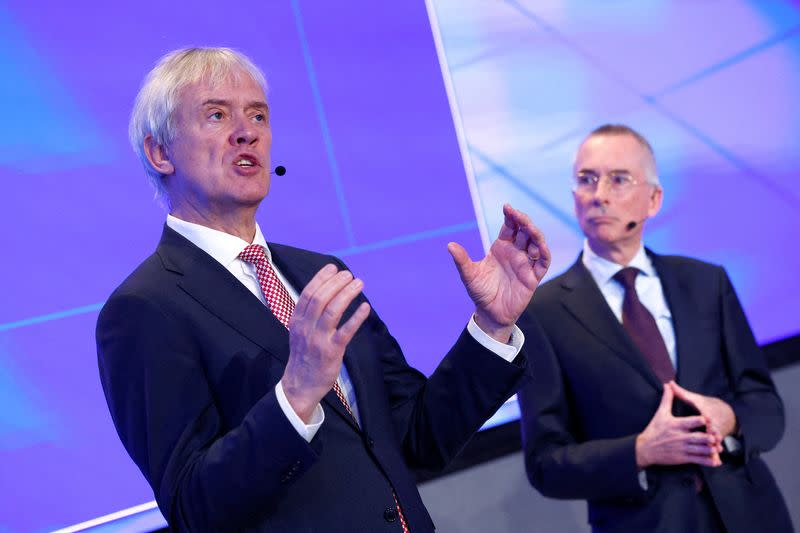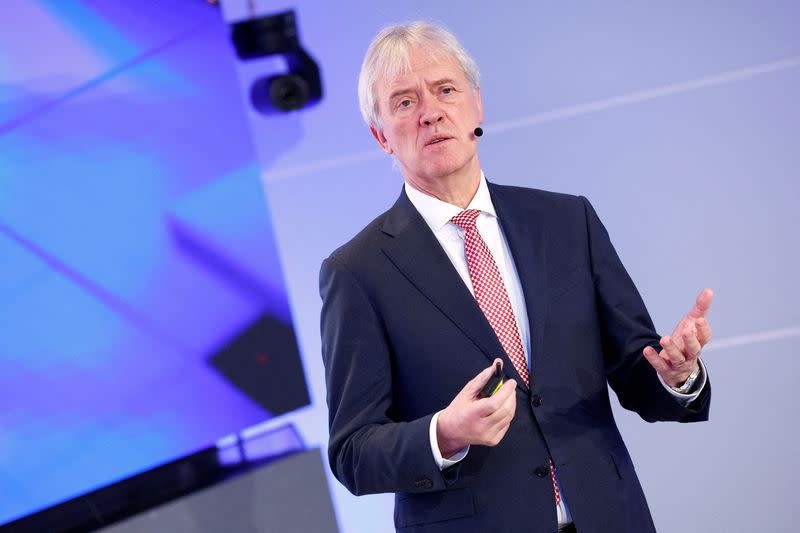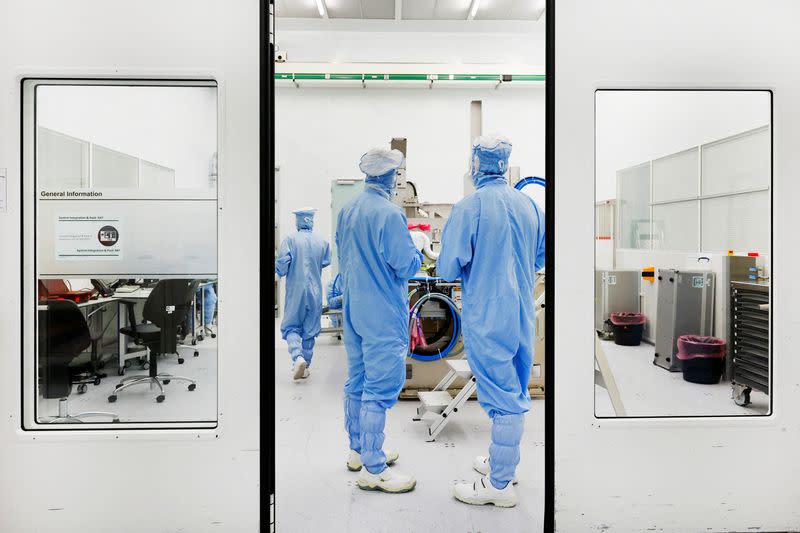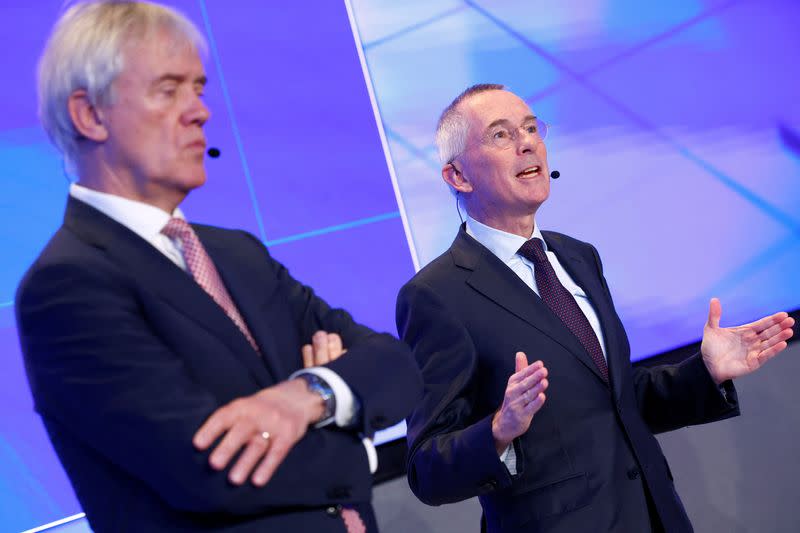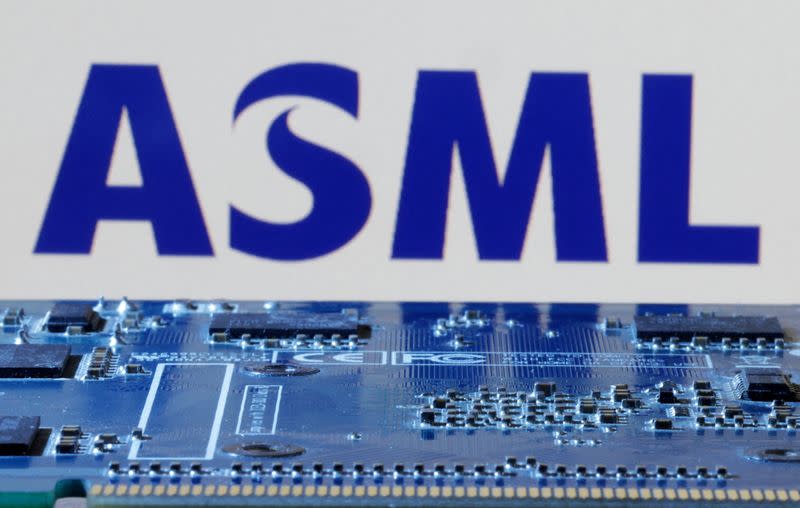ASML shares close at record high after earnings beat, orders pop
By Toby Sterling
VELDHOVEN, Netherlands (Reuters) -ASML Holding shares gained nearly 10% to close at a record high on Wednesday following fourth-quarter earnings that beat expectations and a growing order backlog that points to a computer chip market recovery.
Europe's largest technology company by market value maintained an outlook for flat sales in 2024 as it faces new restrictions on sales to China, but executives acknowledged that estimate is conservative.
Shares in the Dutch company closed at 775.80 euros in Amsterdam, a 9.7% rise that took the company's market capitalisation above 300 billion euros ($327 billion) for the first time.
Net profit rose 9% to 2.0 billion euros ($2.2 billion) on sales of 7.2 billion euros in the fourth quarter. That topped analyst expectations of a 1.87 billion euros net profit on revenue of 6.9 billion euros, according to LSEG data.
The company registered orders of more than 9 billion euros in the quarter, more than triple third-quarter levels, but kept its outlook for flat sales in 2024. New orders came from chip-makers planning to bring capacity online in late 2024 or in 2025 amid strong demand for artificial intelligence chips.
"The semiconductor industry continues to work through the bottom of the cycle," CEO Peter Wennink said in a statement.
"Although our customers are still not certain about the shape of the semiconductor market recovery this year, there are some positive signs," he said, citing improving demand for chips and higher factory utilisation rates.
ASML said it received orders of 5.6 billion euros for its most advanced "extreme ultraviolet," or EUV, machines, including "multiple orders" for its new "High NA" EUV machines, which cost more than $300 million each. ASML shipped the first to Intel last month.
"The EUV order intake has massively surprised on the upside, (with) some High NA orders in the order intake as well," Robert Schramm-Fuchs, portfolio manager at ASML investor Janus Henderson, said.
"The crucial thing for us this morning is it really dispels the bear argument on the midterm technology progression outlook."
The new orders for equipment used to make high end chips will have been booked by companies like Taiwan's TSMC, which makes chips for Apple and Nvidia. TSMC, is ASML's biggest customer, said last week its expected capital expenditure would be flat in 2024. Intel, Samsung, SK Hynix and Micron also use ASML's top equipment.
ASML dominates the global market for lithography systems that help create the circuitry of chips.
"After the good results and the good outlook from TSMC last week, people were hoping that they would increase their outlook for 2024. But they're still a little bit conservative," analyst Jos Versteeg of InsingerGilissen said.
He said the company would likely raise forecasts later this year as end-markets continue to recover.
The company said sales to China, usually its third-largest market after Taiwan and South Korea, would be impacted in 2024 by new U.S. and Dutch export restrictions introduced in 2023, affecting up to 15% of its China sales.
($1 = 0.9207 euros)
(Reporting by Toby Sterling; Editing by Mark Potter, Tomasz Janowski and Chris Reese)

 Yahoo Finance
Yahoo Finance 